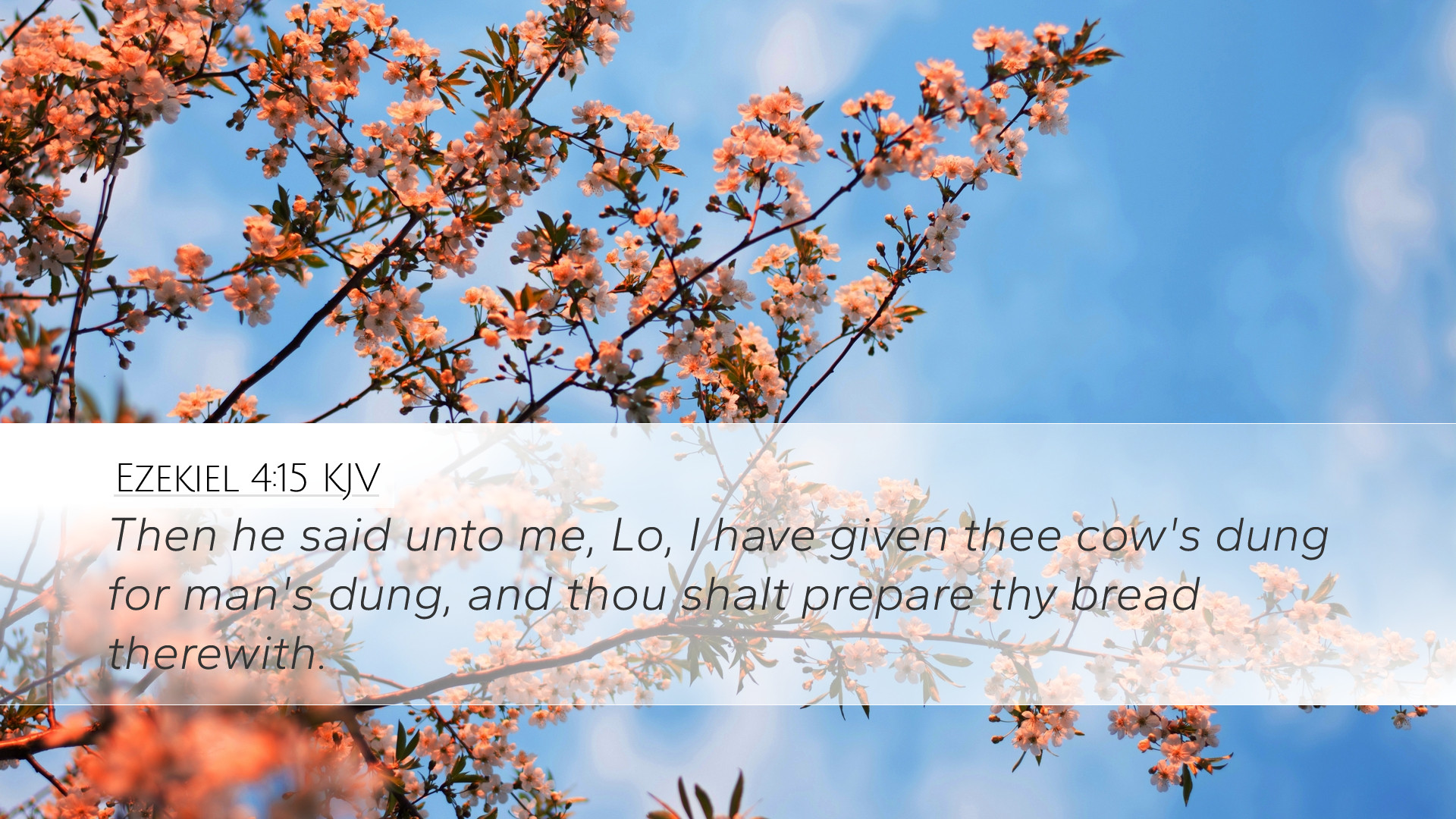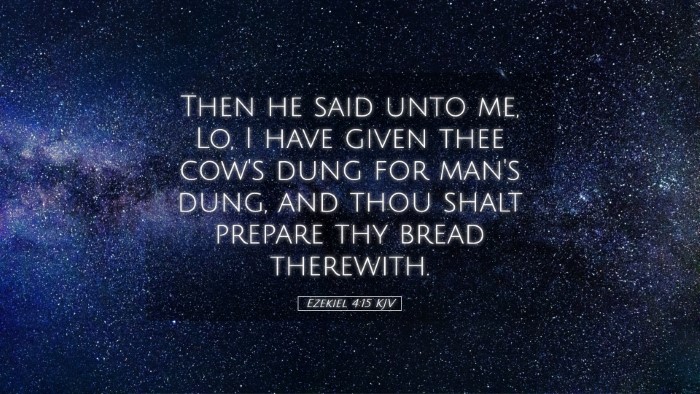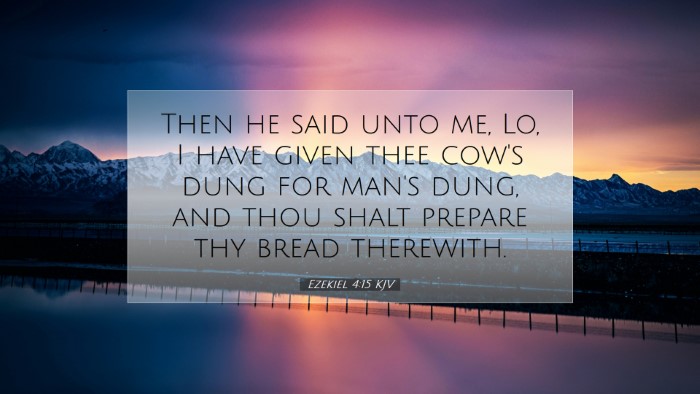Ezekiel 4:15 - Commentary and Insights
Verse Context: Ezekiel 4:15 states, "Then He said to me, 'See, I am giving you cow’s dung instead of human dung, and you shall prepare your bread on it.'" This verse is part of a prophetic act performed by the prophet Ezekiel, illustrating the severe conditions that would accompany the siege of Jerusalem and the spiritual state of Israel.
Summary of Insights
The directive given to Ezekiel serves multiple purposes. As noted in Matthew Henry's Commentary, this act symbolizes the degradation and humiliation experienced by the people of Israel as a consequence of their sins against God. The use of cow's dung rather than human dung indicates God's mercy even in judgment, providing an alternative that is less abhorrent, which reflects His compassion amidst calamity.
Albert Barnes emphasizes that this prophetic action illustrates the dire situation the Israelites would face during the Babylonic siege. It is a striking representation of the struggles of survival in a time of divine judgment, serving as an admonition against spiritual complacency and apostasy.
Adam Clarke elaborates on the ritualistic significance of the bread-baking process, linking it to the law around food purity. Clarke notes that God, while issuing a punishment, still outlines a method for the prophet that maintains some level of ceremonial fitness — as with the substitution of cow's dung instead of the more loathsome human dung.
Theological Implications
This passage raises significant theological questions regarding the nature of God's judgment and mercy. The substitution of cow's dung for human dung serves as a reminder that even in times of judgment, God retains a focus on humanity's dignity and potential for repentance.
- Human Condition: This prophetic sign illustrates the fallen human condition, where sin leads to degradation and marred relationships with God.
- Divine Mercy: The mercy shown in this command suggests that God desires to preserve life and dignity, highlighting the hope that exists even amidst judgment.
- Call to Repentance: The graphic nature of the act serves as a call to the Israelites to turn from their ways and return to God, showing them their condition through a visual and tangible action.
Historical and Cultural Context
Understanding the historical backdrop of Ezekiel's ministry is crucial for grasping the profundity of this verse. At the time of the Babylonian siege, Israel was facing immense trials as a result of its persistent idolatry and rebellion against God’s commandments.
Matthew Henry articulates how the consuming act of cooking bread was a common practice, facilitating an understanding of daily life among the Israelites, making Ezekiel’s action all the more impactful as it served to highlight the desperation they would face.
Albert Barnes accounts for the cultural perspective regarding food. Bread is a staple of life, symbolizing sustenance and the hunger for God's word — which they were forsaking. Thus, Ezekiel's action signified not merely physical hunger but also a spiritual famine, as spoken of in Amos 8:11, “Behold, the days are coming... when I will send a famine on the land; not a famine of bread, nor a thirst for water, but of hearing the words of the Lord.”
Adam Clarke emphasizes how such prophetic acts were not uncommon in prophetic literature, serving as lived parables that embodied the message God intended to convey to His people, reminding them of their covenant obligations and consequences of deviation from His statutes.
Practical Applications
For contemporary readers and scholars, Ezekiel 4:15 provides rich material for spiritual reflection and application:
- Humility before God: The acknowledgment of our sinful nature and the need for divine mercy is a key takeaway. Recognizing that our lives, like Ezekiel’s message, can serve as warnings or illustrations of God’s grace.
- Compassion in Judgment: Understanding that even in judgment, God’s intention is to call people back to Himself — church leaders are reminded to approach discipline within the community with a heart aimed at restoration, not merely punishment.
- Living Prophetic Lives: Just as Ezekiel was called to act out God's messages, modern believers are encouraged to embody their faith actively through acts of service, compassion, and prophetic witness in a world that often mirrors the chaos of ancient Israel.
Conclusion
In conclusion, Ezekiel 4:15, through its stark imagery and dire content, presents profound theological, historical, and practical insights. The engagement with this verse encourages modern readers to reflect on their relationship with God, the implications of their choices, and the overarching theme of redemption that runs throughout scripture. The commentaries by Matthew Henry, Albert Barnes, and Adam Clarke provide depth and clarity that serve pastors, students, theologians, and scholars in their study of this significant prophetic text.


